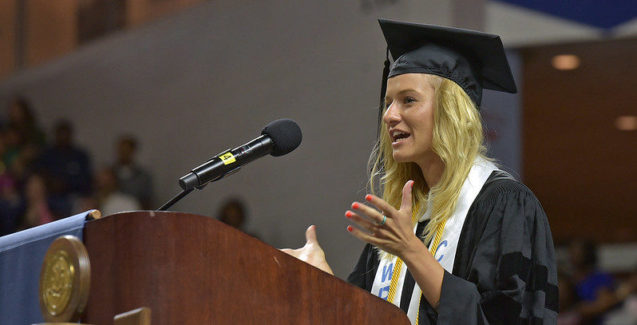DEPARTMENT OF HISTORY, PHILOSOPHY, AND WORLD PERSPECTIVES
224 Warner Hall
181 White Street
Danbury, CT 06810
(203) 837-8484
Welcome to the website of the Department of History, Philosophy, and World Perspectives at Western! The department offers undergraduate and graduate students a range of exciting courses dedicated to debating the ever-evolving ideas, institutions and challenges that have shaped the human past and present. We currently offer courses in American, Latin American, Asian and European history. In addition to a major and minor in History, we also offer minors with specialized focuses: Urban Studies, Latin American Studies, Asian Studies, European History, American History and Middle Eastern Studies.
Danbury, Connecticut is an ideal location for exploring the past. It has been the site of indigenous cultures for millennia. The city was a colonial outpost, Revolutionary War battle site, and center of the US hat-making industry. Today, the greater Danbury and New York City areas provide unmatched museums, historic sites, research centers, and many fascinating internship opportunities for History students.
Western’s history majors receive a first-class liberal arts education and learn to think and read critically, write well, and plan and execute complex projects. A History degree prepares students for careers in politics, law, business, non-profits, the arts, public service or primary and secondary education or for graduate study in law, business, and humanities. Our alumni have succeeded in these fields and in others: https://www.wcsu.edu/history/alumni-news/
Our goals are:
- To provide an interdisciplinary forum in which students can debate the political, social, cultural, religious, economic, and geographic aspects of history.
- To introduce students to world perspectives and help them understand global political and cultural relations.
- To help students develop their abilities to think critically, discuss, and explain clearly historical issues and problems.
- To cultivate writing, research, and analysis skills that will help students lead successful professional and personal lives.
- To provide a history/education curriculum that imparts a broad base of knowledge about historical events, principles, and theories, so that students have the foundational knowledge they need to educate others.
- To facilitate our students’ understanding of their national and community heritage.
Our undergraduate course offerings include:
His 100 Introduction to History (FY)
His 115 Latin American and Caribbean History
His 147 History of Slavery in the Americas
His 148 US to 1877
His 149 US since 1877
His 186 Europe: Ancient and Medieval
His 187 Modern Europe
His 200 Colonial America
His 201 Immigrant New York City
His 225 Doing Public History
His 233 The Irish in America
His 250 Conquest and Survival in Latin America 1492-1812
His 251 Resistance and Revolution in Latin America 1812 to the present
His 271 Medieval Europe
His 277 Modern China
His 288 Renaissance and Reformation
His 291 Nationalism and Imperialism in Europe 1848-1914
His 292 The Era of the World Wars in Europe 1914-1945
His 293 Europe Since 1945
His 302 The American Revolution 1763-1789
His 303 The Age of Jefferson 1789-1829
His 318 The Civil War
His 319 Women in Medieval and Early Modern Europe
His 321 Medieval Cities
His 325 Witchcraft in New England
His 330 Medieval Britain (410-1453)
His 332 The Germans
His 341 The Russians
His 363 The American City
His 367 Building America: History of Architecture
His 368 New York City: History and Culture
His 375 War, Peace and Memory in Latin America
His 380 Film as History
His 388 Modern Viet Nam: Memory and History
His 416 Race and Power in US History
His 425 Gender and Popular Culture in American History
His 450 Historiography
His 475 Seminar in History- topic varies each semester
His 490 Senior Seminar
His 494 Senior Seminar Honors
Our course expectations:
| Course Level: | 100 | 200 | 300 | 400 |
| Description: | These courses introduce content and source materials in history | These courses also introduce content, but at a much more specific level, and encourage deeper engagement with a specific subject area. | These courses prioritize questions of analysis, research, and interpretation, and focus on analysis of primary and secondary sources. | These courses place historical ideas in advanced historiographical context. |
| Reading Expectation: | No specific standard | An introduction to close reading techniques of primary and secondary sources is expected. | Students may expect reading assignments of up to 100 pages per week. | Students can expect readings with a high level of complexity, similar to what might be expected in a 500-level MA class. Readings may be up to 200 pages per week.
|
| Writing Expectation: | Minimum of 10 pages, but writing can be informal (essay exams, in-class discussion prompts) | Minimum of 10 pages, but writing can be informal (essay exams, in-class discussion prompts) | Minimum of 10 pages of formal writing.* | Minimum of 15 pages of formal writing. |
| “ |
“Formal writing” is creative work conducted outside of class—it may take the form of research papers, position papers, multimedia projects, or curriculum design, but it is arrived at through careful consideration and revision.



